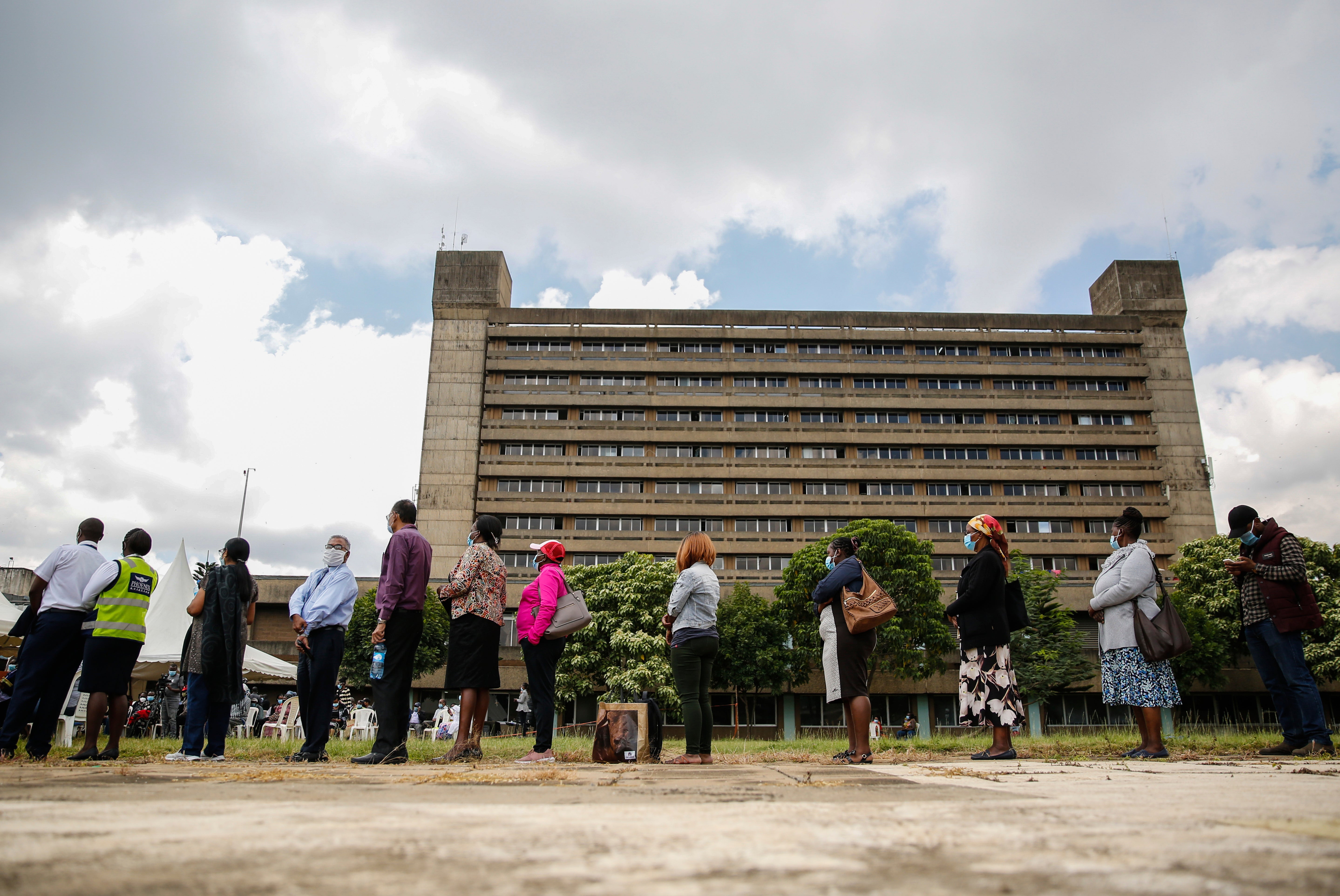Hundreds of Kenyan doctors protest in the streets as national strike enters second week
Hundreds of Kenyan doctors have protested in the streets demanding better pay and working conditions in an ongoing nationwide strike that has entered its second week

Your support helps us to tell the story
From reproductive rights to climate change to Big Tech, The Independent is on the ground when the story is developing. Whether it's investigating the financials of Elon Musk's pro-Trump PAC or producing our latest documentary, 'The A Word', which shines a light on the American women fighting for reproductive rights, we know how important it is to parse out the facts from the messaging.
At such a critical moment in US history, we need reporters on the ground. Your donation allows us to keep sending journalists to speak to both sides of the story.
The Independent is trusted by Americans across the entire political spectrum. And unlike many other quality news outlets, we choose not to lock Americans out of our reporting and analysis with paywalls. We believe quality journalism should be available to everyone, paid for by those who can afford it.
Your support makes all the difference.Hundreds of Kenyan doctors protested in the streets Friday demanding better pay and working conditions in an ongoing nationwide strike that has entered its second week.
The doctors carried placards and chanted against the Kenyan government, saying it had failed to implement a raft of promises, including a collective bargaining agreement signed in 2017 after a 100-day strike during which people died from lack of care.
Kenya Medical Practitioners Pharmacists and Dentists Union Secretary-General Dr. Davji Bhimji said the strike will continue until all the demands are met.
“We have nothing else to lose but the chains of poverty and distress that we’ve been having,” he said.
The standoff has left thousands of Kenyans without much-needed public health services.
Health Minister Susan Nakhumicha on Wednesday said she had instructed two top referral hospitals to recruit doctors to replace those taking part in the national strike.
Bhimji said the hiring of new doctors to replace those on strike would not settle the underlying labor concerns that caused the strike.
“I’m very sure those doctors cannot run those hospitals because those terms are quite exploitative and demeaning,” he said.
The doctors on Thursday stopped providing emergency services at public hospitals as they escalated the strike despite a court order calling for talks between the union and the Health Ministry.
Kenya’s head of the Public Service, Felix Kosgei, met late Thursday with union officials and various ministries and said the government is willing to implement the collective bargaining agreement, but in phases due to financial constraints.